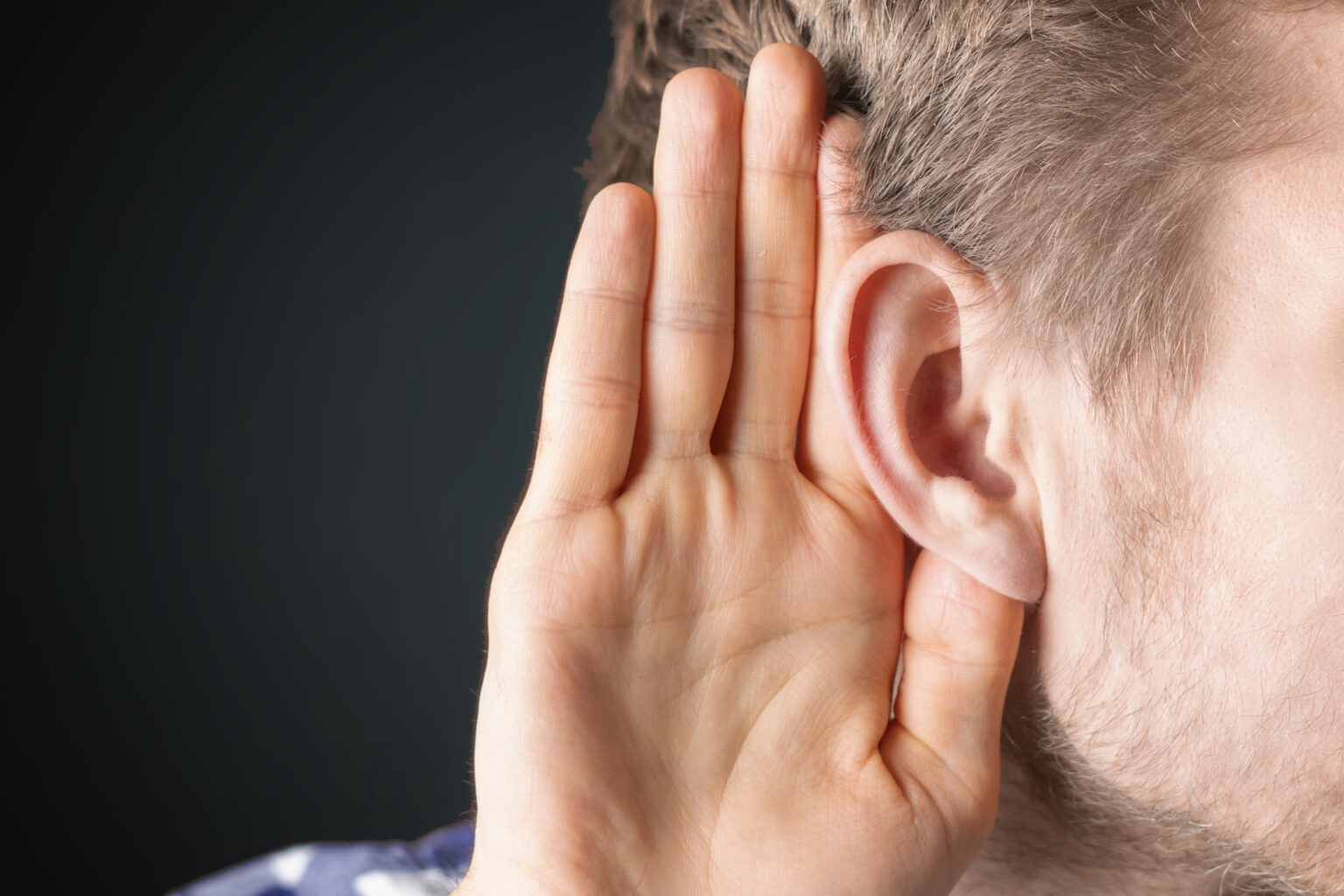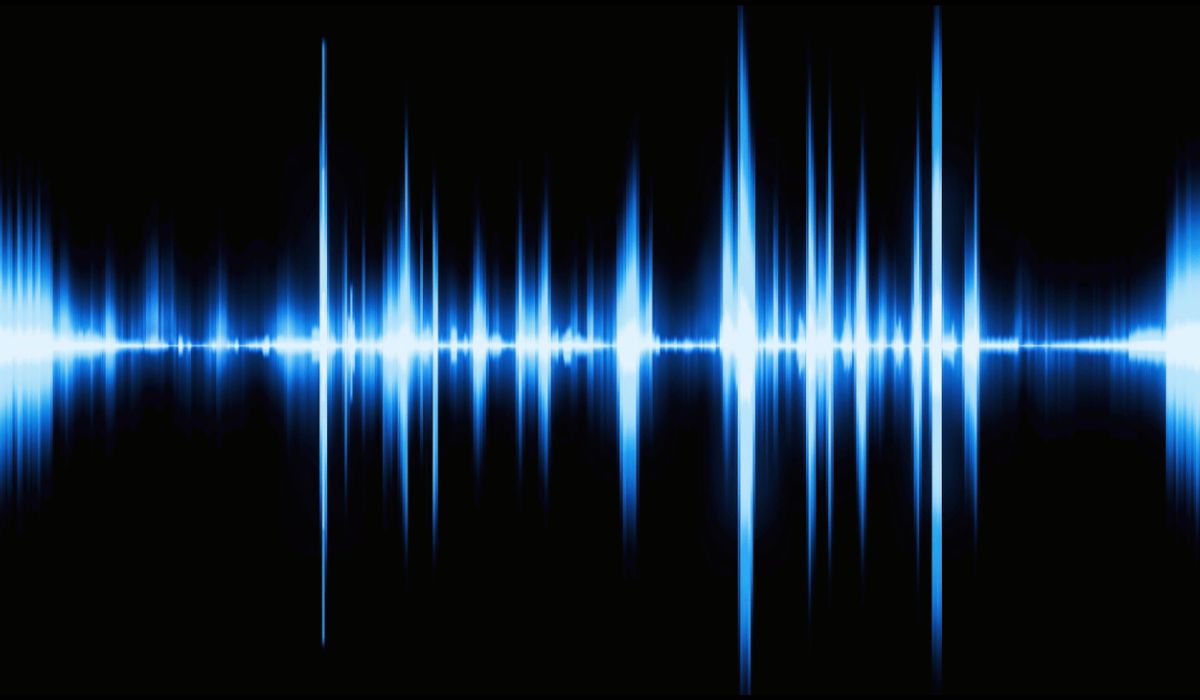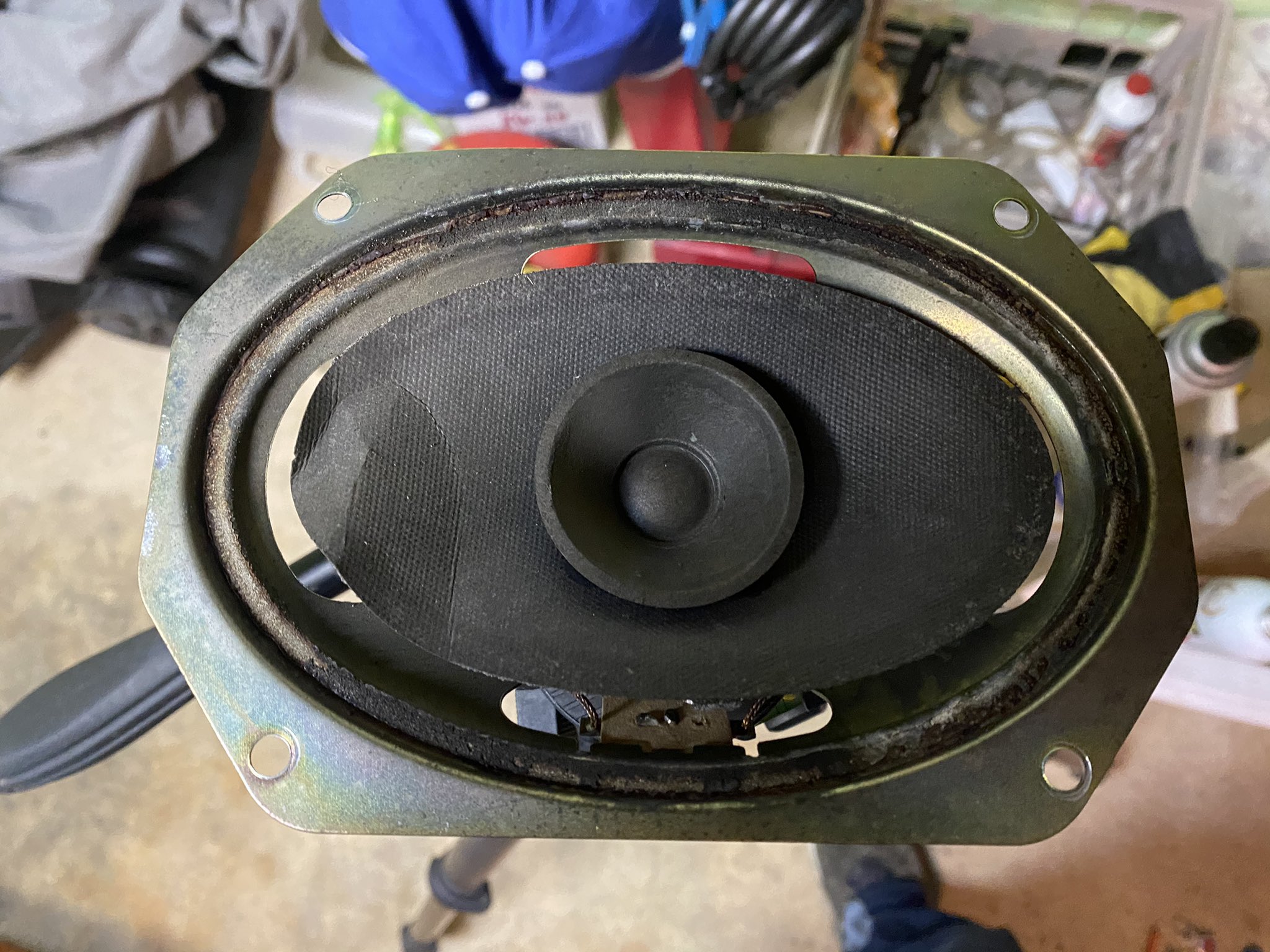Home>Events & Info>Frequency>What Does High-Frequency Hearing Loss Sound Like


Frequency
What Does High-Frequency Hearing Loss Sound Like
Published: February 18, 2024
Discover what high-frequency hearing loss sounds like and how it affects your ability to hear. Learn about the causes, symptoms, and treatments. Gain insights on frequency-related hearing issues.
(Many of the links in this article redirect to a specific reviewed product. Your purchase of these products through affiliate links helps to generate commission for AudioLover.com, at no extra cost. Learn more)
Table of Contents
Introduction
High-frequency hearing loss is a common audiological condition that affects a significant portion of the population. This type of hearing loss specifically impacts the ability to discern sounds in the higher frequency range, leading to difficulties in understanding speech and perceiving certain environmental cues. Understanding the nature of high-frequency hearing loss, its causes, effects, and coping mechanisms is essential for individuals experiencing this condition and their loved ones. Moreover, awareness of the available treatment options can significantly improve the quality of life for those affected.
This article aims to provide a comprehensive overview of high-frequency hearing loss, shedding light on its implications and offering insights into how it can be managed effectively. By delving into the causes and effects of this condition, as well as the available coping strategies and treatment modalities, readers will gain a deeper understanding of high-frequency hearing loss and its impact on daily life. Whether you are personally dealing with this type of hearing impairment or seeking to support someone who is, this article will equip you with valuable knowledge and practical guidance.
Understanding the nuances of high-frequency hearing loss is crucial for fostering empathy and creating a more inclusive environment for individuals with this condition. By exploring what high-frequency hearing loss sounds like and the challenges it presents, we can cultivate greater understanding and compassion. Additionally, by examining the coping mechanisms and treatment options available, we can empower individuals with high-frequency hearing loss to lead fulfilling lives despite the challenges they may face. Let's embark on a journey to unravel the intricacies of high-frequency hearing loss and discover the ways in which we can navigate this condition with resilience and optimism.
Understanding High-Frequency Hearing Loss
High-frequency hearing loss, also known as high-pitch hearing loss, refers to the diminished ability to hear sounds in the higher frequency range, typically above 2,000 Hz. This type of hearing impairment can make it challenging to discern consonants such as s, h, and f, which are crucial for understanding speech clearly. Individuals with high-frequency hearing loss may struggle to follow conversations, especially in noisy environments, and may perceive speech as muffled or garbled.
Unlike low-frequency hearing loss, which affects the ability to hear lower-pitched sounds like vowels, high-frequency hearing loss can significantly impact communication and comprehension, leading to social and emotional repercussions. Understanding the specific frequencies affected and their role in speech intelligibility is essential for grasping the implications of high-frequency hearing loss.
High-frequency hearing loss can occur as a result of aging, prolonged exposure to loud noises, genetic predisposition, or certain medical conditions and treatments. It is important to recognize that this type of hearing impairment can manifest gradually, making it imperative to monitor any changes in hearing acuity over time. Seeking professional evaluation and understanding the nature of high-frequency hearing loss are crucial steps in addressing this condition effectively.
By gaining a deeper understanding of high-frequency hearing loss, individuals and their loved ones can recognize the signs and symptoms, seek timely intervention, and explore strategies for managing the associated challenges. Furthermore, raising awareness about the impact of high-frequency hearing loss can foster empathy and support within communities, contributing to a more inclusive and accommodating environment for individuals with this condition.
Causes of High-Frequency Hearing Loss
High-frequency hearing loss can stem from various factors, each contributing to the impairment of hearing in the upper frequency range. One of the primary causes is presbycusis, or age-related hearing loss, which often affects the higher frequencies as individuals grow older. Prolonged exposure to loud noises, such as industrial machinery, music concerts, or firearms, can also lead to high-frequency hearing loss, highlighting the importance of protecting one’s hearing in noisy environments.
Genetic predisposition plays a significant role in high-frequency hearing loss, as certain hereditary conditions can make individuals more susceptible to this type of hearing impairment. Additionally, exposure to ototoxic medications and treatments, such as certain chemotherapy drugs and radiation therapy, can contribute to high-frequency hearing loss. It is crucial for healthcare providers to consider the potential auditory side effects of medications and treatments, especially when managing patients with preexisting hearing concerns.
Other medical conditions, including otosclerosis, Meniere’s disease, and autoimmune inner ear disease, can also lead to high-frequency hearing loss. Understanding the underlying health conditions that may impact hearing acuity is essential for accurate diagnosis and targeted management strategies. Furthermore, recognizing the occupational and environmental factors that pose a risk to hearing health can inform proactive measures to prevent high-frequency hearing loss in various settings.
By comprehensively understanding the diverse causes of high-frequency hearing loss, individuals can make informed choices to protect their hearing and mitigate potential risk factors. Moreover, healthcare professionals can tailor their approach to diagnosing and managing high-frequency hearing loss based on the specific etiological factors involved, ultimately enhancing the effectiveness of interventions and support services for those affected by this condition.
Effects of High-Frequency Hearing Loss
High-frequency hearing loss can have profound effects on various aspects of an individual’s life, encompassing communication, social interactions, emotional well-being, and overall quality of life. One of the primary consequences of high-frequency hearing loss is the impact on speech intelligibility, as sounds crucial for clear communication, such as consonants and high-pitched voices, may become difficult to discern. This can lead to misunderstandings, frustration, and a sense of isolation during conversations, particularly in noisy or crowded environments.
Furthermore, individuals with high-frequency hearing loss may experience challenges in perceiving environmental cues, such as alarms, doorbells, and bird songs, which can affect their safety and awareness of their surroundings. This can engender feelings of vulnerability and anxiety, highlighting the far-reaching implications of high-frequency hearing loss beyond communication difficulties.
Socially, high-frequency hearing loss can impact relationships and interactions, as affected individuals may feel hesitant to engage in conversations or participate in group activities due to the challenges they face in understanding speech. This can lead to feelings of withdrawal, loneliness, and a diminished sense of connection with others. Addressing the psychosocial effects of high-frequency hearing loss is crucial for promoting mental well-being and fostering a supportive environment for individuals grappling with this condition.
Moreover, the emotional toll of high-frequency hearing loss should not be overlooked, as it can contribute to stress, frustration, and a sense of inadequacy in communication. Recognizing the emotional impact and psychological resilience required to navigate the daily challenges posed by high-frequency hearing loss is essential for fostering empathy and understanding within communities.
By shedding light on the multifaceted effects of high-frequency hearing loss, it becomes evident that this condition extends beyond the realm of auditory impairment, influencing various aspects of an individual’s personal and social experiences. Understanding these effects can guide the development of tailored support mechanisms and interventions aimed at enhancing the overall well-being and quality of life for individuals affected by high-frequency hearing loss.
What High-Frequency Hearing Loss Sounds Like
Experiencing high-frequency hearing loss can significantly alter an individual’s perception of sound, leading to specific auditory challenges that shape their daily experiences. Sounds that are typically clear and distinct to individuals with normal hearing may become muffled or indistinct for those with high-frequency hearing loss. This can particularly affect speech comprehension, as consonants and high-pitched sounds play a crucial role in conveying meaning and nuances in communication.
For individuals with high-frequency hearing loss, speech may sound garbled or incomplete, making it challenging to discern certain words and follow conversations, especially in noisy environments. Consonant sounds such as s, f, and h, which are vital for understanding speech, may be particularly difficult to perceive, leading to gaps in comprehension and potential misunderstandings. As a result, affected individuals may find themselves frequently asking others to repeat themselves or feeling uncertain about what was said.
Moreover, individuals with high-frequency hearing loss may struggle to detect subtle auditory cues, such as the rustling of leaves, the chirping of birds, or the beeping of electronic devices. This can impact their ability to remain attuned to their surroundings and may lead to a heightened sense of disconnection from the auditory environment.
In addition to the challenges in speech perception, music and other auditory stimuli may also be experienced differently by individuals with high-frequency hearing loss. The richness of high-pitched musical notes and the clarity of certain instruments may be diminished, altering the overall auditory experience. This can lead to a sense of frustration or a perceived loss of enjoyment in activities that are typically associated with vibrant auditory experiences.
Understanding what high-frequency hearing loss sounds like is crucial for fostering empathy and awareness within communities. By recognizing the specific auditory difficulties faced by individuals with this condition, we can cultivate a more inclusive and supportive environment that accommodates their unique needs. Moreover, acknowledging the impact of high-frequency hearing loss on speech perception, environmental awareness, and auditory enjoyment can guide the development of tailored strategies to enhance communication and overall auditory experiences for those affected.
Coping with High-Frequency Hearing Loss
Coping with high-frequency hearing loss involves a multifaceted approach that encompasses practical strategies, emotional resilience, and the support of healthcare professionals and loved ones. One of the fundamental coping mechanisms is seeking professional guidance from audiologists and otolaryngologists to assess the extent of the hearing loss and explore suitable interventions. This may include the use of hearing aids specifically designed to amplify high-frequency sounds, thereby improving speech intelligibility and overall auditory perception.
Communication strategies play a pivotal role in coping with high-frequency hearing loss. Individuals can benefit from informing their conversation partners about their hearing impairment and advocating for conducive communication environments, such as well-lit spaces with minimal background noise. Additionally, utilizing visual cues, such as lip reading and facial expressions, can complement auditory input and enhance comprehension during conversations.
Embracing assistive technologies and communication devices can significantly aid individuals in coping with high-frequency hearing loss. These may include captioned telephones, smartphone apps for hearing assistance, and alerting systems for environmental sounds, all of which contribute to bridging the auditory gaps and promoting greater independence and engagement in daily activities.
Psychosocial support and education are vital components of coping with high-frequency hearing loss. Engaging in peer support groups and counseling sessions can provide individuals with a platform to share experiences, gain insights from others facing similar challenges, and develop effective coping strategies. Furthermore, educating family members, friends, and colleagues about the nature of high-frequency hearing loss and its impact can foster understanding and facilitate a supportive network for the affected individual.
Self-care and advocacy are integral aspects of coping with high-frequency hearing loss. Prioritizing mental well-being, seeking opportunities for relaxation and stress management, and advocating for accommodations in various settings are essential for navigating the daily challenges associated with this condition. By embracing a proactive and resilient mindset, individuals can empower themselves to overcome obstacles and lead fulfilling lives despite the auditory limitations posed by high-frequency hearing loss.
Ultimately, coping with high-frequency hearing loss involves a combination of practical adjustments, emotional adaptation, and social support. By harnessing these strategies and resources, individuals can navigate the complexities of high-frequency hearing loss with resilience and determination, fostering a positive outlook and an enriched quality of life.
Treatment Options for High-Frequency Hearing Loss
Addressing high-frequency hearing loss entails a range of treatment options aimed at enhancing auditory perception, improving speech intelligibility, and mitigating the impact of this condition on daily life. One of the primary interventions for high-frequency hearing loss is the use of hearing aids specifically designed to amplify sounds in the higher frequency range. These advanced devices can be tailored to address the unique auditory needs of individuals with high-frequency hearing loss, providing enhanced clarity and comprehension of speech and environmental sounds.
For individuals with more severe high-frequency hearing loss, cochlear implants may be considered as a viable treatment option. These surgically implanted devices bypass the damaged portions of the inner ear and directly stimulate the auditory nerve, facilitating improved sound perception and speech understanding. Cochlear implants have been instrumental in significantly enhancing the auditory experiences of individuals with profound high-frequency hearing loss, enabling them to engage more fully in conversations and activities.
Advancements in assistive listening devices have also expanded the treatment options for high-frequency hearing loss. These devices, such as FM systems and loop systems, can augment sound delivery in specific settings, such as classrooms and auditoriums, enhancing speech clarity and reducing the impact of background noise on auditory perception. Additionally, alerting systems that utilize visual or vibratory cues for doorbells, alarms, and telephones can contribute to greater environmental awareness for individuals with high-frequency hearing loss.
For individuals with high-frequency hearing loss resulting from ototoxic medications or certain medical conditions, targeted medical interventions and management strategies may be employed to address the underlying causes and minimize further auditory deterioration. This may involve collaborating with healthcare providers to adjust medications, explore alternative treatment options, or implement measures to preserve existing hearing acuity.
Moreover, speech and auditory rehabilitation programs tailored to the specific needs of individuals with high-frequency hearing loss can play a pivotal role in optimizing treatment outcomes. These programs focus on enhancing speech perception, communication strategies, and auditory skills, empowering individuals to navigate the challenges posed by high-frequency hearing loss with confidence and proficiency.
By integrating these diverse treatment options, individuals with high-frequency hearing loss can access comprehensive interventions that cater to their unique auditory requirements, ultimately enhancing their ability to engage in conversations, perceive environmental sounds, and enjoy a fulfilling auditory experience. Collaborating with audiologists and otolaryngologists to explore the most suitable treatment modalities based on individual needs is essential for optimizing the management of high-frequency hearing loss.
Conclusion
High-frequency hearing loss presents unique challenges that extend beyond auditory impairment, influencing communication, social interactions, emotional well-being, and overall quality of life. Understanding the nuanced effects and implications of high-frequency hearing loss is crucial for fostering empathy, raising awareness, and implementing effective support mechanisms for individuals grappling with this condition. By shedding light on the specific auditory difficulties faced by those with high-frequency hearing loss, we can cultivate a more inclusive and accommodating environment that acknowledges and accommodates their unique needs.
Empowering individuals with high-frequency hearing loss involves a multifaceted approach encompassing professional interventions, communication strategies, assistive technologies, psychosocial support, and self-advocacy. By embracing tailored treatment options, such as specialized hearing aids, cochlear implants, and assistive listening devices, individuals can enhance their auditory perception and speech intelligibility, ultimately improving their overall quality of life.
Furthermore, fostering a supportive network of understanding family members, friends, colleagues, and healthcare professionals is instrumental in creating an environment that acknowledges and accommodates the challenges posed by high-frequency hearing loss. By promoting open communication, education, and empathy, we can cultivate a community that embraces inclusivity and empowers individuals with high-frequency hearing loss to thrive despite their auditory limitations.
As we continue to advance in the understanding and management of high-frequency hearing loss, it is imperative to prioritize proactive measures for hearing protection, early detection of hearing changes, and comprehensive interventions tailored to the specific needs of affected individuals. By advocating for accessible resources, inclusive environments, and ongoing research, we can contribute to a future where individuals with high-frequency hearing loss can navigate their auditory experiences with resilience, confidence, and an unwavering sense of belonging.
Ultimately, by recognizing the multifaceted impact of high-frequency hearing loss and embracing holistic approaches to treatment and support, we can pave the way for a more inclusive and compassionate society where every individual’s auditory journey is valued, understood, and enriched.











